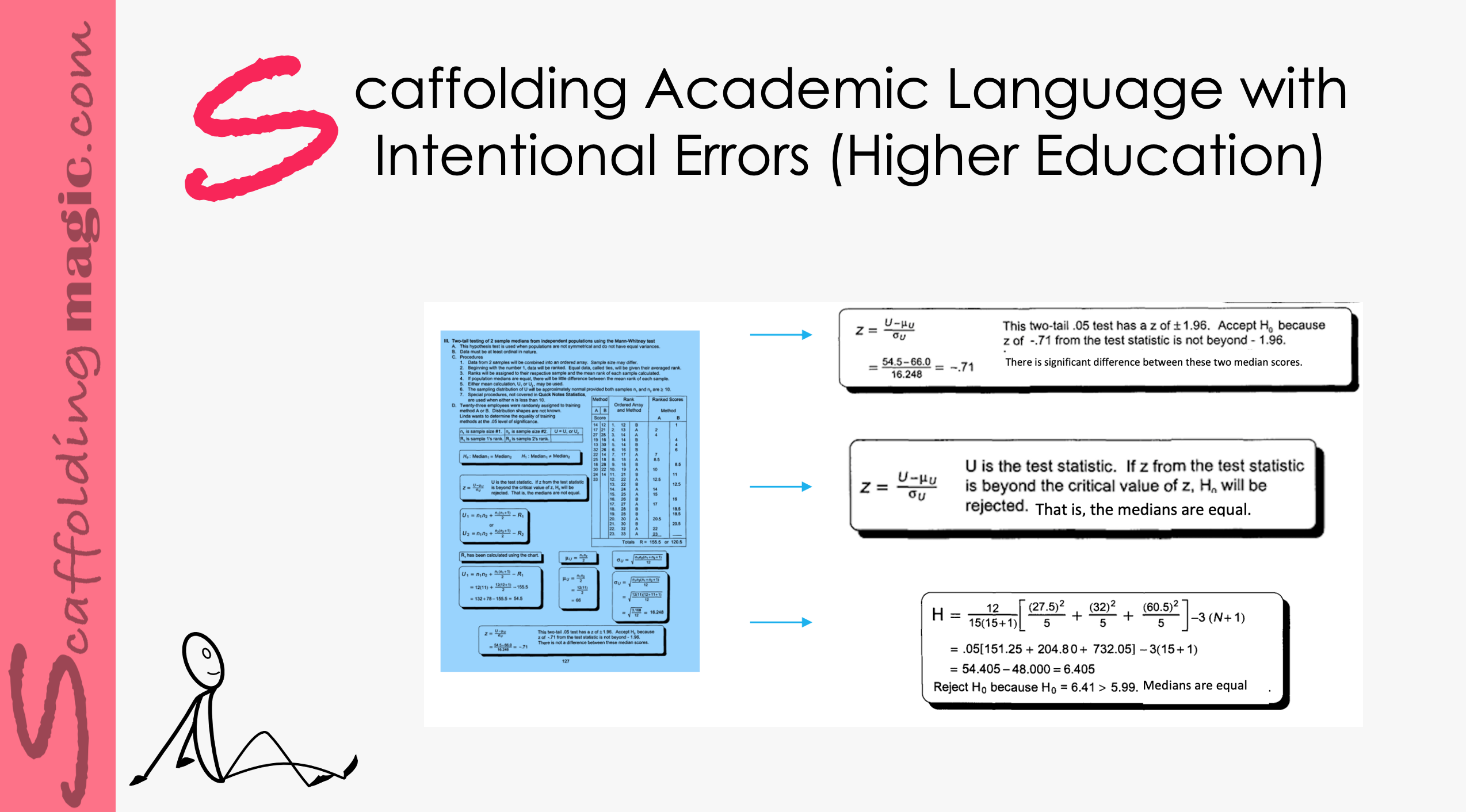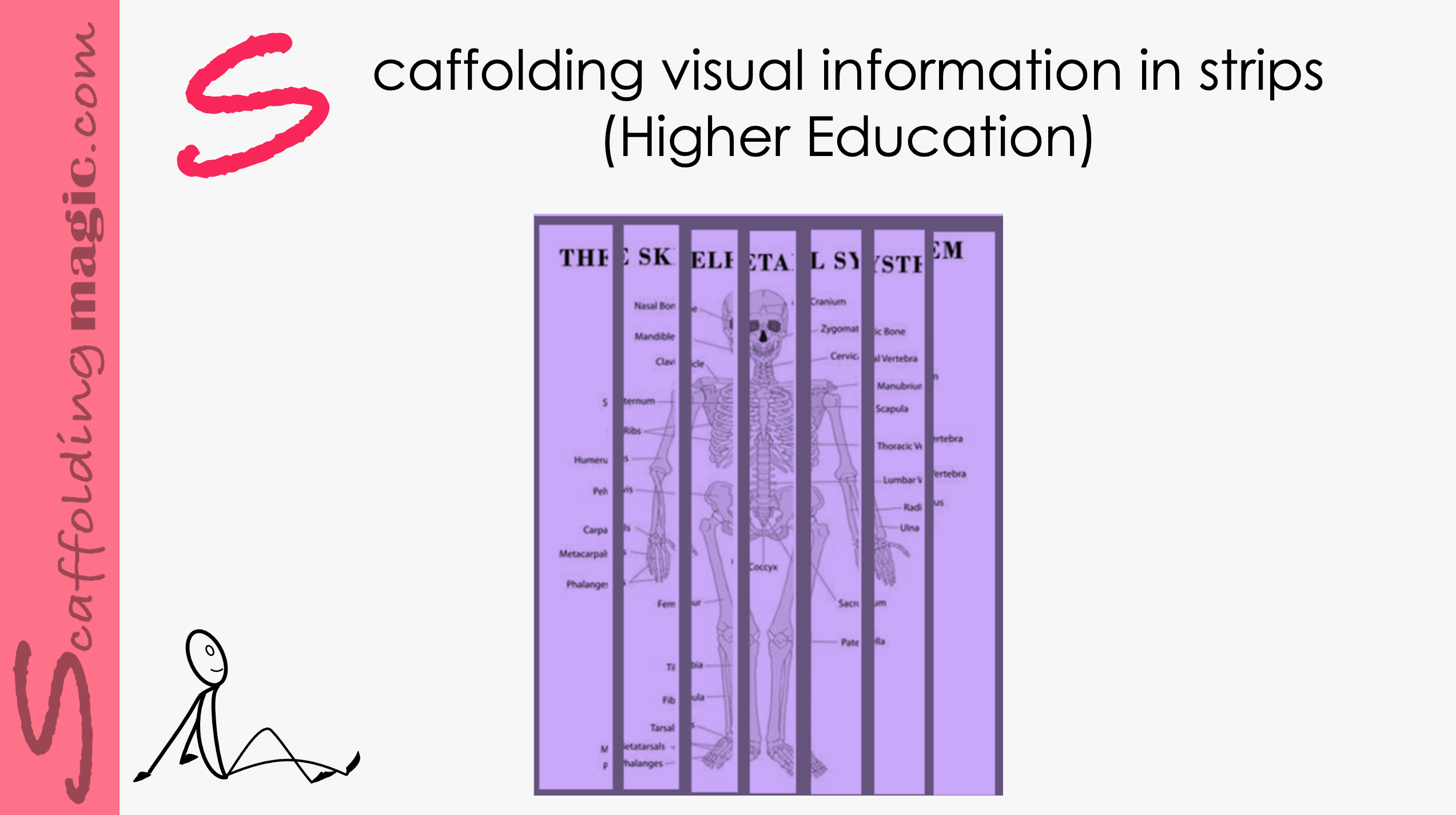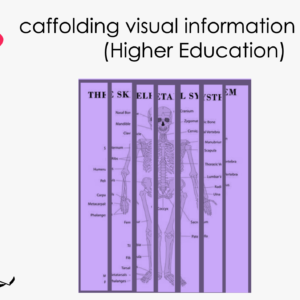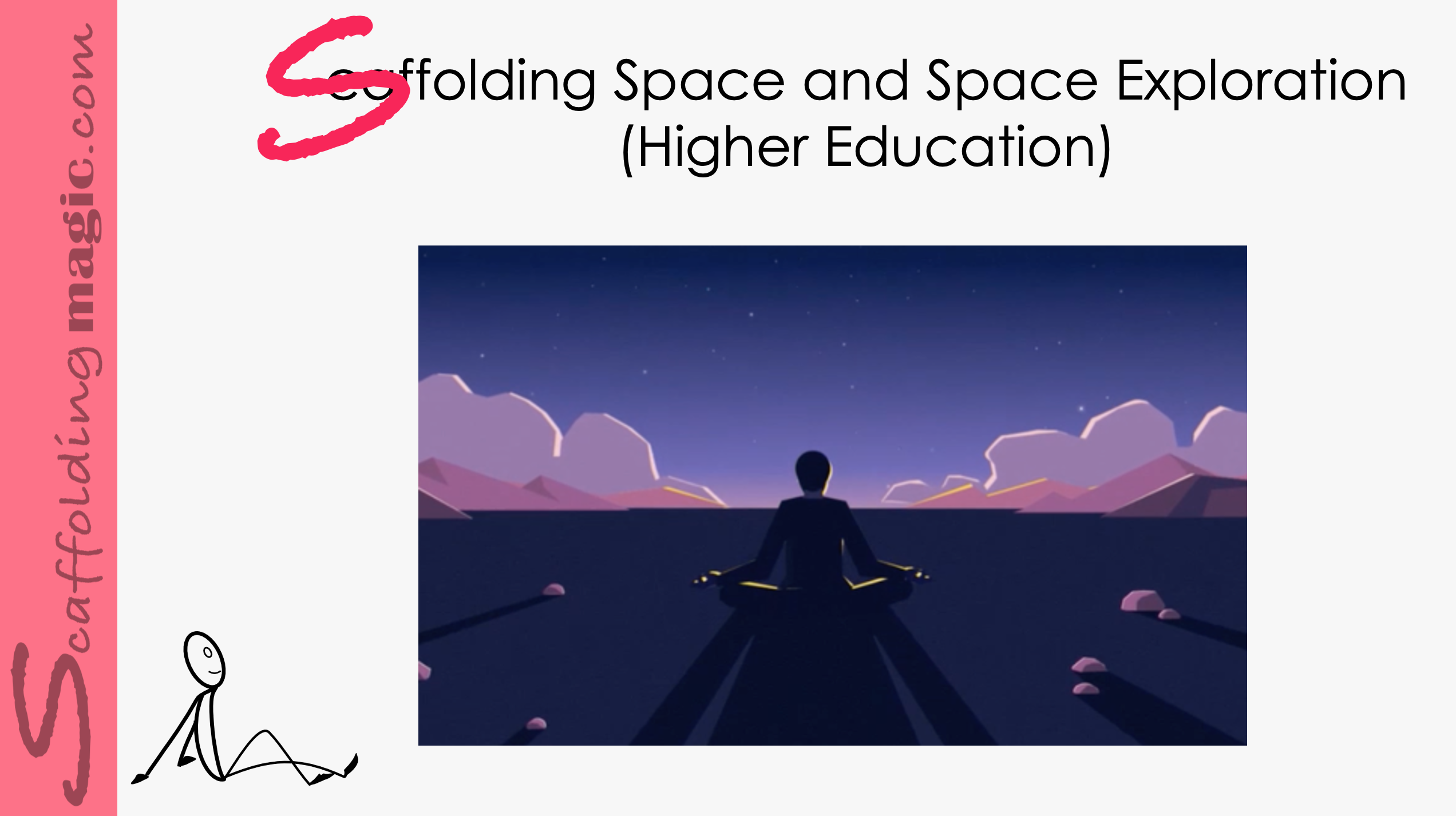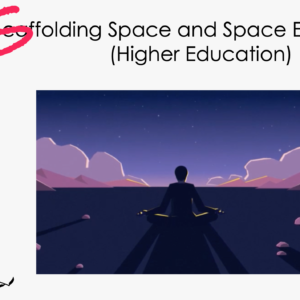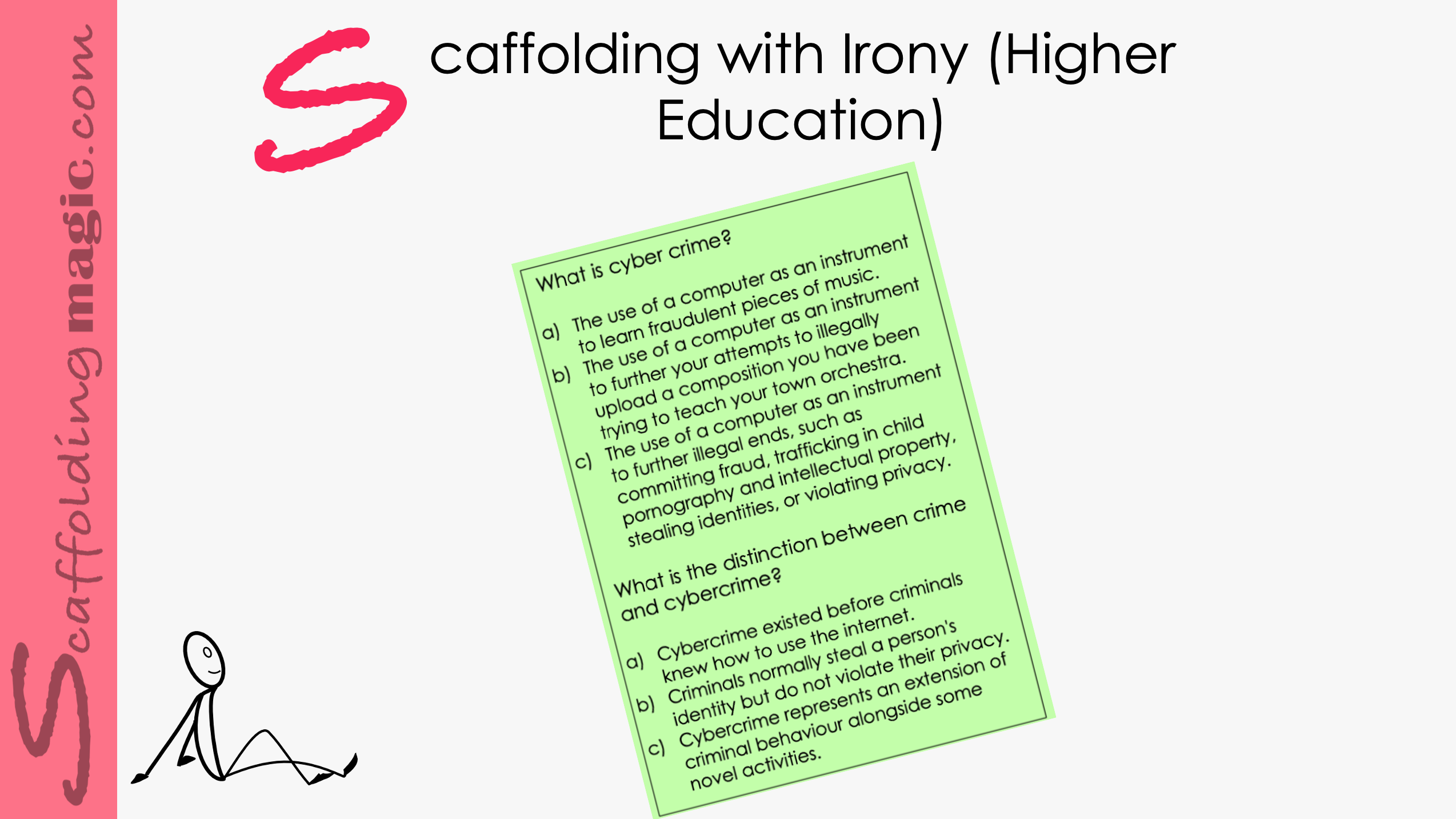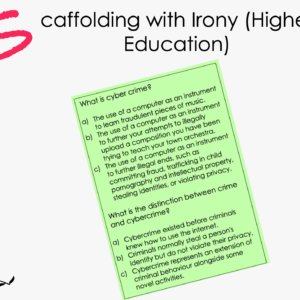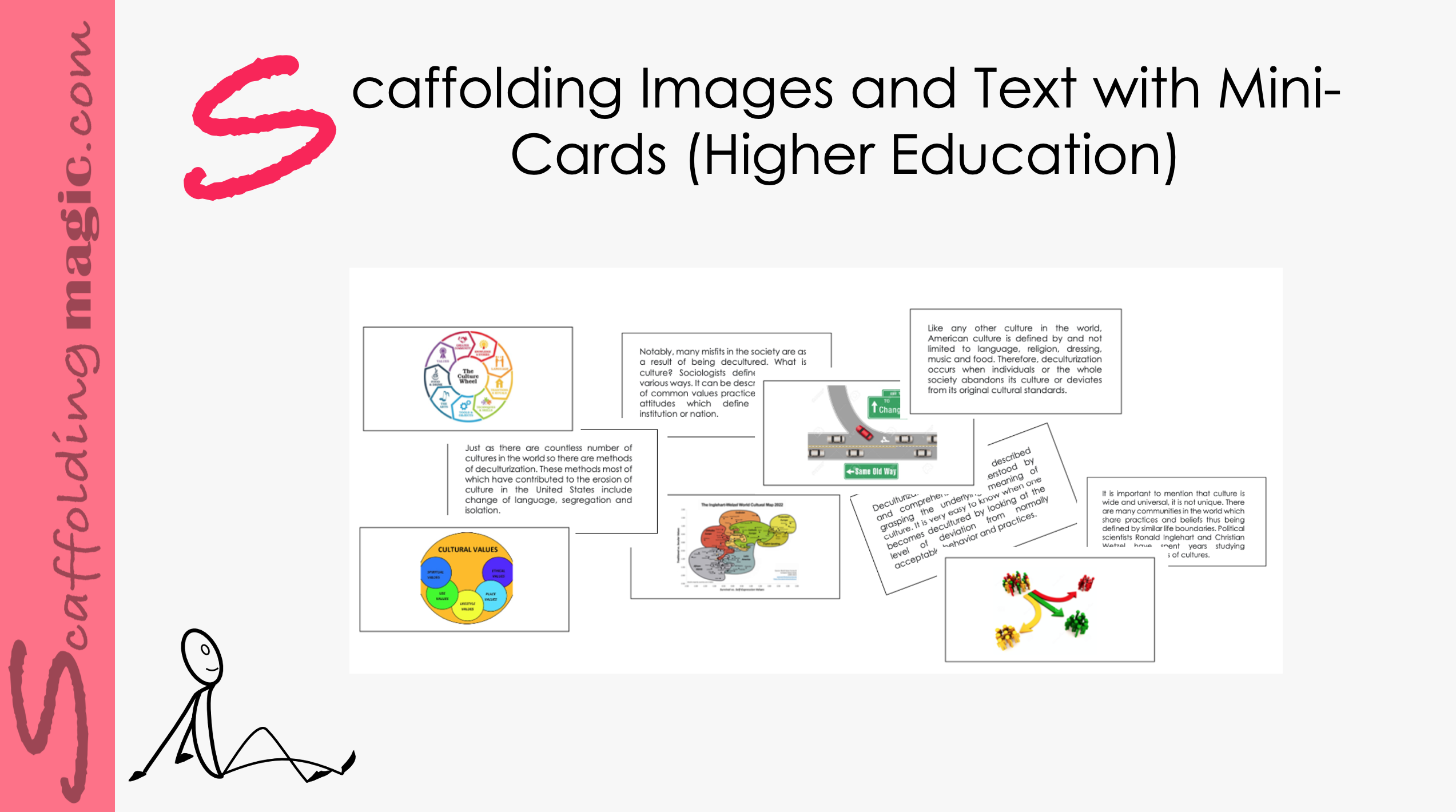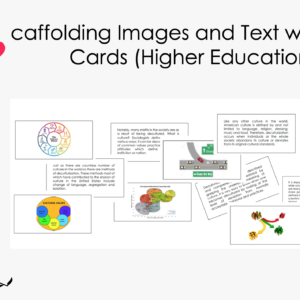The brain sparks and grows when we make mistakes – even if we are not aware of it – because it is a time of struggle; the brain is challenged, and so this is when it grows the most.* Errors need to be celebrated in our classroom; we need to help our students to embrace the effort they make in their studies and focus on mistakes and successes alike, and not only the outcomes.
Scaffolding Academic Language – through errors (higher education)
$5.00
The brain sparks and grows when we make mistakes – even if we are not aware of it – because it is a time of struggle; the brain is challenged, and so this is when it grows the most.* Errors need to be celebrated in our classroom; we need to help our students to embrace the effort they make in their studies and focus on mistakes and successes alike, and not only the outcomes.
Related products
-
Higher Education ScaffoldsQuick View
Scaffolding Visual Information in Strips (Higher Education)
$5.00 Add to cartRated 0 out of 5 -
Higher Education ScaffoldsQuick View
Scaffolding space & space exploration (higher education)
$5.00 Add to cartRated 0 out of 5 -
Higher Education ScaffoldsQuick View
Scaffolding with Irony (Higher Education)
$5.00 Add to cartRated 0 out of 5 -
Higher Education ScaffoldsQuick View
Scaffolding Images and Text with Mini-Cards (Higher Education)
$5.00 Add to cartRated 0 out of 5
Scaffolding Visual Information in Strips (Higher Education)
When we add strategies in activities that promote critical thinking, collaboration, negotiation and prediction – all through visual means – we’ve created a powerful means of presenting new ideas to our students. This scaffold technique also includes categorisation which, according to Morton Hunt*, one of the pioneers of the study of the mind, has been proven to yield educational efficiency and helps the brain process information more fluidly.
Scaffolding space & space exploration (higher education)
Let’s help students to consider the original motives behind space exploration – controlling direction and purpose of what is possible in space in the future. How important is that goal and is inner exploration more meaningful?
Let’s help students to consider the original motives behind space exploration – controlling direction and purpose of what is possible in space in the future. How important is that goal and is inner exploration more meaningful?
Scaffolding with Irony (Higher Education)
Adding humour to a lesson is always a recipe for success. Humour changes the dynamic of the class and helps students to see their lessons with a different frame of mind. This scaffold uses irony – the highest form of humour – to help make potentially dry material more inviting and accessible.
Adding humour to a lesson is always a recipe for success. Humour changes the dynamic of the class and helps students to see their lessons with a different frame of mind. This scaffold uses irony – the highest form of humour – to help make potentially dry material more inviting and accessible.
Scaffolding Images and Text with Mini-Cards (Higher Education)
In this scaffold, students have the opportunity to develop their linguistic and visual skills as they negotiate connections between text and images. They also interact with the information through temporal and grammatical transformations, as well as bodily-kinesthetic interplay.
We take every opportunity to expand our practice. Whenever possible, we broaden the variety of strategies we use in our classroom activities so that when our students go out into the world, they are more prepared – all because of the extra effort we put into our lessons.
In this scaffold, students have the opportunity to develop their linguistic and visual skills as they negotiate connections between text and images. They also interact with the information through temporal and grammatical transformations, as well as bodily-kinesthetic interplay.
We take every opportunity to expand our practice. Whenever possible, we broaden the variety of strategies we use in our classroom activities so that when our students go out into the world, they are more prepared – all because of the extra effort we put into our lessons.

